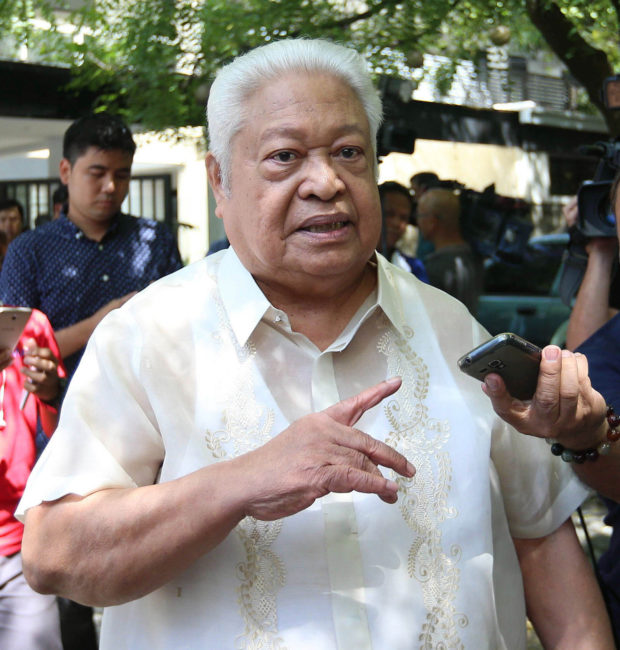PH has obligation to comply with ICC inquiry–Lagman
As a signatory to the Rome Statute, the Philippines is obligated to submit to the jurisdiction of the International Criminal Court (ICC)—the same assertion President Duterte’s spokesperson had made in a bill he filed when he was still a party-list congressman, an opposition lawmaker said on Friday.
Albay Rep. Edcel Lagman said the statute required the country to cooperate with the ICC prosecutor’s inquiry into the Duterte administration’s bloody war on drugs.
Crimes against humanity
The President, he added, could not “hinder” the preliminary examination by the ICC Office of the Prosecutor of the complaint, accusing him of committing crimes against humanity in the government’s drug war that had claimed the lives of thousands of drug suspects.
“Neither can Duterte challenge the ICC’s jurisdiction over him by foisting the country’s sovereignty,” Lagman said in a statement.
Article continues after this advertisementThe lawmaker reminded Mr. Duterte’s spokesperson, Harry Roque, that the latter had, in fact, filed a bill invoking the country’s obligations to the ICC when he was still the Kabayan party-list lawmaker.
Article continues after this advertisementIn filing House Bill 2835, Lagman quoted Roque as saying that as a “party to the Rome Statute, the Philippines must fulfill its international legal obligations to assist the Court in the task of addressing the most serious crimes of international concern.”
Thus, “even as he is the President’s anointed apologist, Roque cannot flip-flop without remorse, and forfeit any of his remaining credibility,” said the leader of the antiadministration “Magnificent Seven” in the House of Representatives.
Complementarity
The principle of complementarity that Roque had said would prevent the ICC from hearing the cases against Mr. Duterte could actually be hurdled by recognizing that local courts were also bound by the doctrine of presidential immunity from suit, according to a coalition of human rights lawyers.
“We cannot prosecute the President here while he is President. [So] there’s no obstacle to the ICC taking jurisdiction of the case,” said Jose Manuel Diokno, convenor of the “Manlaban sa EJK” coalition and chair of the Free Legal Assistance Group.
Unwilling to act
Diokno was among the participants in Wednesday’s “Rise, Resist, Unite against Tokhang and Tyranny” forum at the University of the Philippines College of Law in Quezon City.
The principle of complementarity means that the ICC can only hear a case if the courts in a concerned state are unable or unwilling to act on a certain case.
Former Bayan Muna party-list Rep. Neri Colmenares said four patterns made the alleged extrajudicial killings under the government’s war on drugs “state-sponsored.”
“[There is] public villification of targets, increased surveillance and operations on targets, the complete impunity with which crimes were committed, and the complete lack of interest to investigate and prosecute on the part of government,” Colmenares said.
Under Article 86 of the Rome Statute, “States Parties shall … cooperate fully with the Court in its investigation and prosecution of crimes within the jurisdiction of the Court.”
The Philippines became a state party to the Rome Statute when then President Benigno Aquino III signed it on Feb. 28, 2011 and the Senate gave its concurrence on Aug. 23, 2011. —WITH A REPORT FROM JAYMEE T. GAMIL
